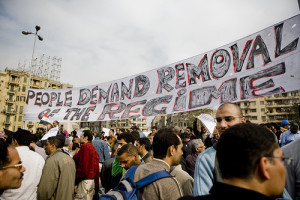Lessons Learned from Transitions
 The collapse of communism in the former Soviet bloc, and more recently the Arab Spring, created a unique and unprecedented momentum for political and economic reform. While the overall policy prescription offered by the Western countries and international organizations was unanimous – democratize and introduce free markets – the details of how those broad guidelines were implemented varied. So did the outcomes.
The collapse of communism in the former Soviet bloc, and more recently the Arab Spring, created a unique and unprecedented momentum for political and economic reform. While the overall policy prescription offered by the Western countries and international organizations was unanimous – democratize and introduce free markets – the details of how those broad guidelines were implemented varied. So did the outcomes.
Little or no prior democratic experience and traditions, the lack of effective mechanisms for transparency and accountability, the absence of market institutions, and in some cases the outbreak of armed conflicts have been the key issues that transition countries grapple with. The most common lingering problems in these countries have been weak governance, inefficient judicial systems, large informal sector, corruption, and persisting barriers to entrepreneurship.
Today, the outcomes in transition countries vary from success stories (most new EU member countries and Tunisia), challenges (former Yugoslavia) to the cases of backsliding on democratic reforms (Egypt, Russia) and armed conflict (Libya, Syria, Ukraine). What are the lessons learned and what is the relevance of these transitions to the challenges faced by other countries around the world trying to implement democratic and market reforms?

Recent Comments